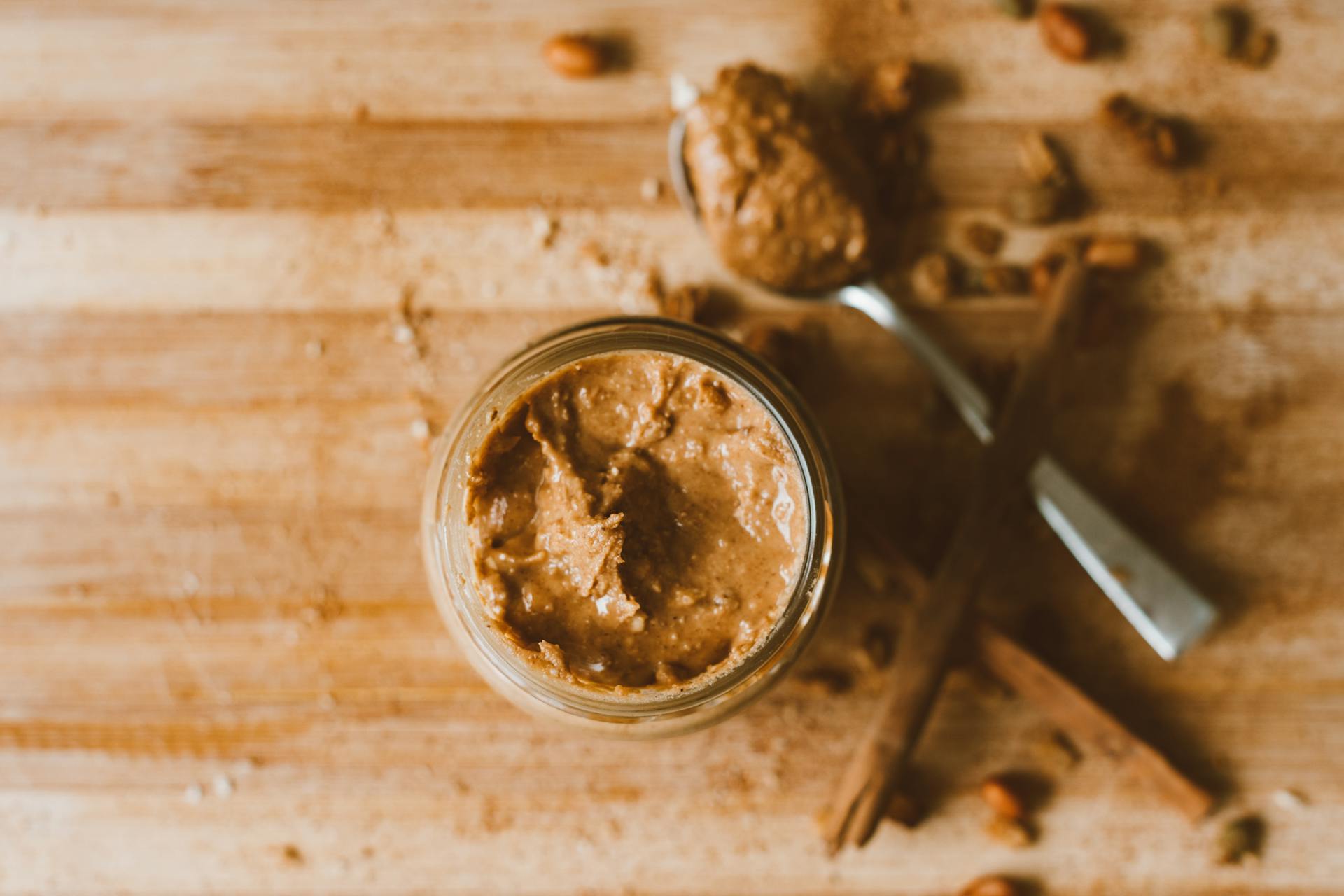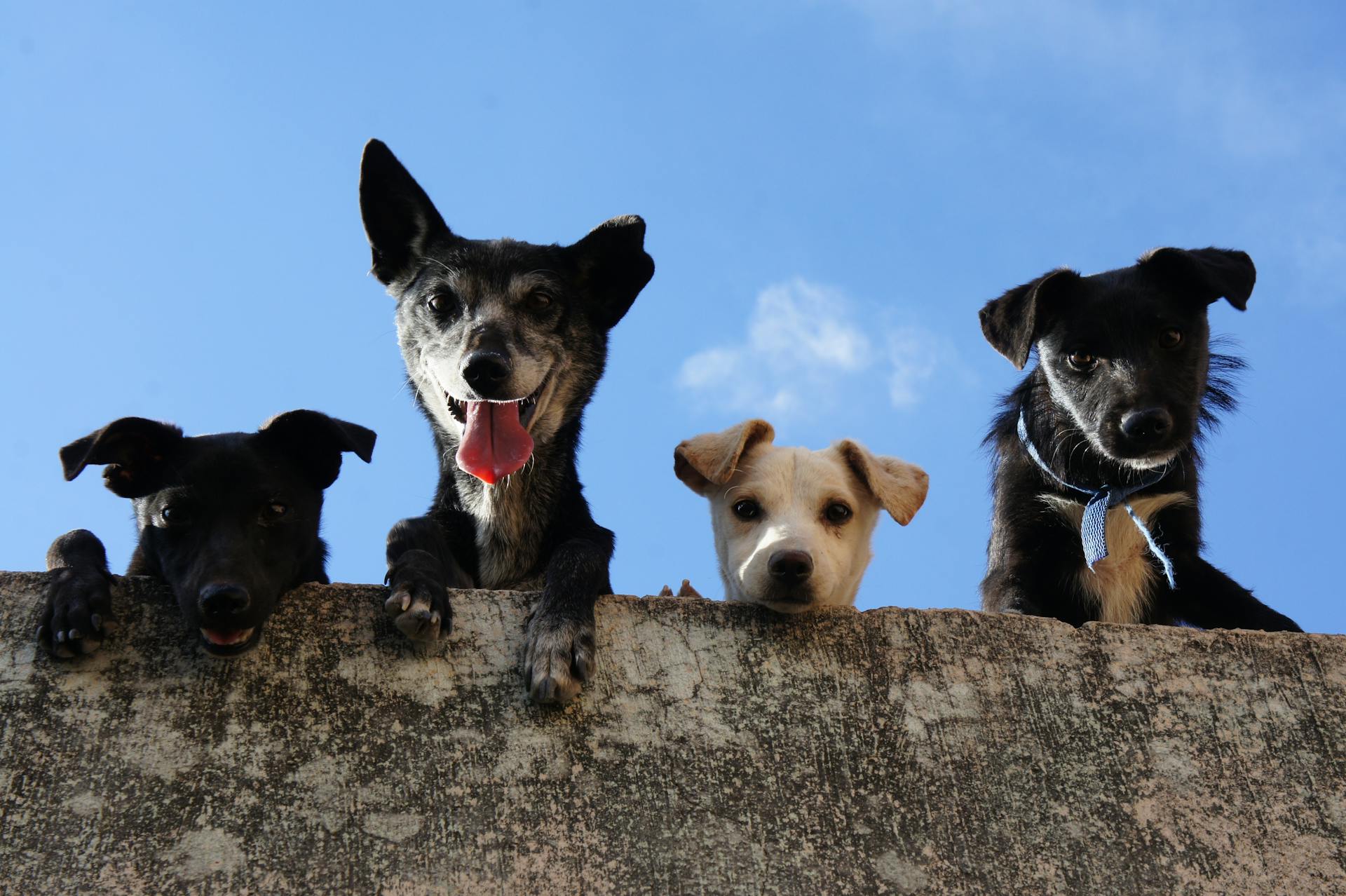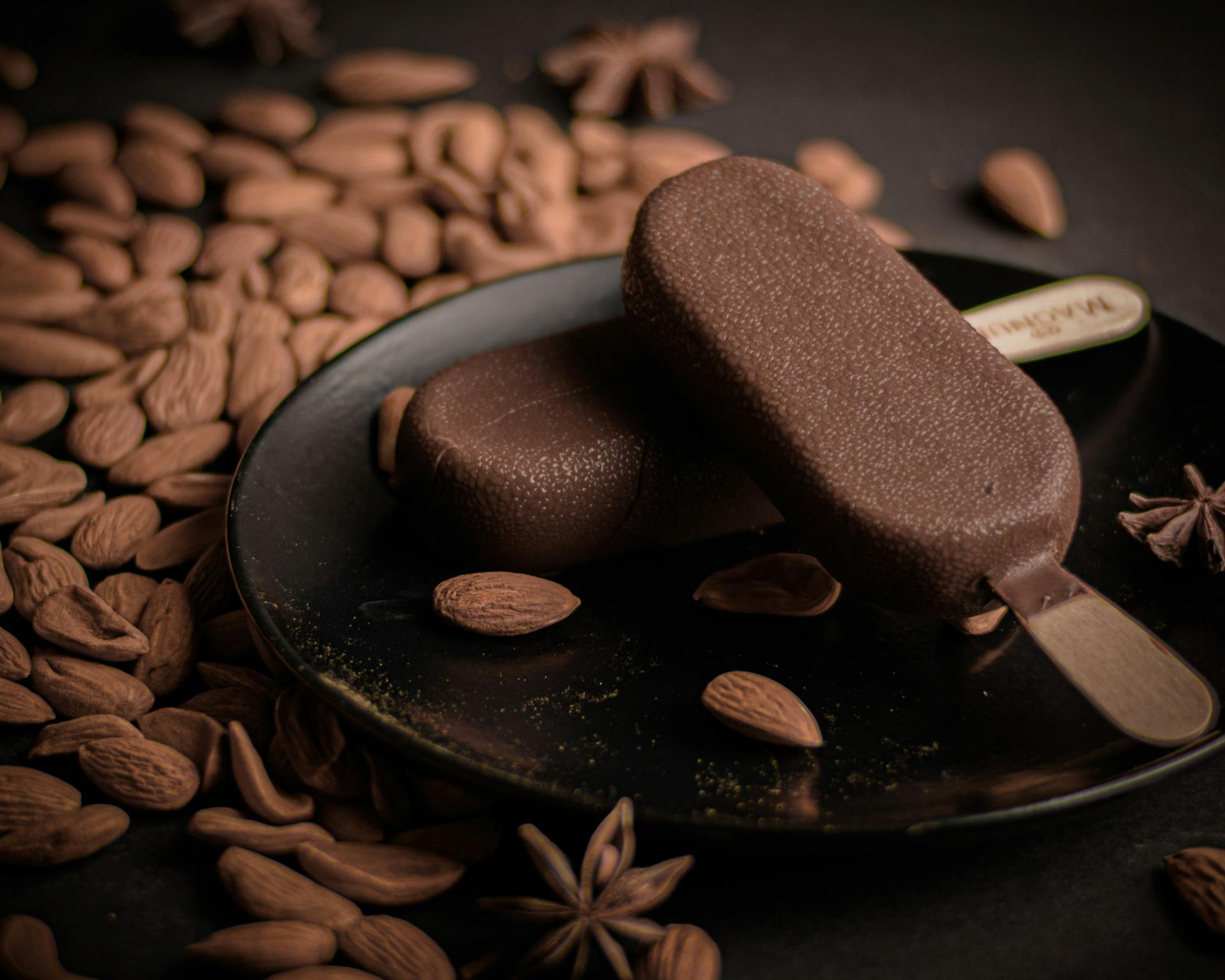
Peanut butter is a tasty treat for dogs, but it's essential to follow some guidelines to ensure their safety.
Xylitol, a common sugar substitute in peanut butter, can be toxic to dogs. Be cautious when choosing peanut butter for your furry friend.
Only a small amount of xylitol is needed to cause harm, so it's crucial to read labels carefully. Look for peanut butter products that explicitly state "xylitol-free" or "safe for dogs."
Some peanut butters are not suitable for dogs due to added ingredients like chocolate or raisins. Always check the ingredients before sharing peanut butter with your dog.
Feeding Guidelines
Feeding peanut butter to your dog requires some guidance to ensure they're getting a safe and healthy treat. Consult with your vet before giving peanut butter to your dog, especially if they have conditions like diabetes or food sensitivity issues.
To determine the right amount of peanut butter for your dog, follow the 10% rule, where treats should not make up more than 10% of your dog's diet. This means measuring how much food your dog gets daily and limiting peanut butter to a small percentage of that amount.
You can offer peanut butter as a snack by spreading it in a rubber dog toy or on a lick mat. Start small and monitor your dog's reaction to ensure they don't have any signs of a peanut allergy or upset stomach.
How Much to Eat?
Feeding your dog peanut butter can be a fun and tasty way to reward good behavior or simply as a treat. However, it's essential to keep in mind that peanut butter should not make up more than 10% of your dog's daily caloric intake.
To determine how much peanut butter your dog can have, consider their weight and daily caloric needs. For example, a 50-pound dog needs about 1,000 calories per day, so they should have no more than 100 calories of treats per day.
Here are some general guidelines for peanut butter treats:
Keep in mind that these are general guidelines, and it's always best to consult with your veterinarian to determine the right amount for your dog. Additionally, if your dog has pancreatitis or diabetes, they may need to be approved by a vet before eating peanut butter.
Remember, peanut butter is high in fat, so it's essential to monitor your dog's weight and adjust their treat allowance accordingly. If you notice any signs of gastrointestinal upset, such as vomiting or diarrhea, stop feeding peanut butter and consult with your vet.
See what others are reading: Homemade Dog Food Recipes Vet Approved for Large Dogs
Is PB&J Safe?
Peanut butter can be safe for your dog in moderate amounts. But it's essential to keep in mind that some peanut butter brands contain xylitol, which is toxic to dogs.
Jelly is a definite no-no for dogs due to its high sugar content, which can lead to diabetes and obesity. Adding sugar to your dog's diet can increase the risk of these health issues.
Grapes, currants, and raisins are also off-limits for dogs as they can cause acute kidney failure. Always check the ingredients of your dog's treats and snacks to ensure they're safe.
If you're already giving your dog peanut butter, be cautious not to add too much sugar, as it can exacerbate the risk of health problems.
Readers also liked: Dogs Eating Sugar
Health Considerations
Dogs can eat peanut butter, but it's essential to be aware of some health considerations. Peanut butter is high in fat, so portion control is crucial to avoid upsetting your dog's digestive system.
Too much peanut butter can cause gastrointestinal upset, such as vomiting or diarrhea, so monitor your dog's reaction before feeding more. Some dogs may also experience allergic reactions, although these are rare.
If your dog has chronic pancreatitis or kidney problems, it's best to avoid peanut butter altogether. For dogs with pancreatitis, even a small amount can cause or worsen their condition.
See what others are reading: Canine Pancreatitis Diet Recipes
Aflatoxins
Aflatoxins are one of the most carcinogenic substances on the planet. Research has shown that they can cause liver cancer in laboratory animals.
Most peanut butter contains aflatoxins, which is a risk for your pet as well. This toxic ingredient is even more common in the organic alternatives, as they're not sprayed with glyphosate or other chemicals that kill it.
Glyphosate, a common herbicide used by many major brands, can also cause health issues in dogs. According to NPIC, glyphosate symptoms in dogs include vomiting, diarrhea, lethargy, weight loss, and excessive drooling.
If your dog eats grass treated with glyphosate herbicides, 15% of them may develop serious symptoms of toxic reaction.
See what others are reading: Common Food Intolerances in Dogs
Other Considerations
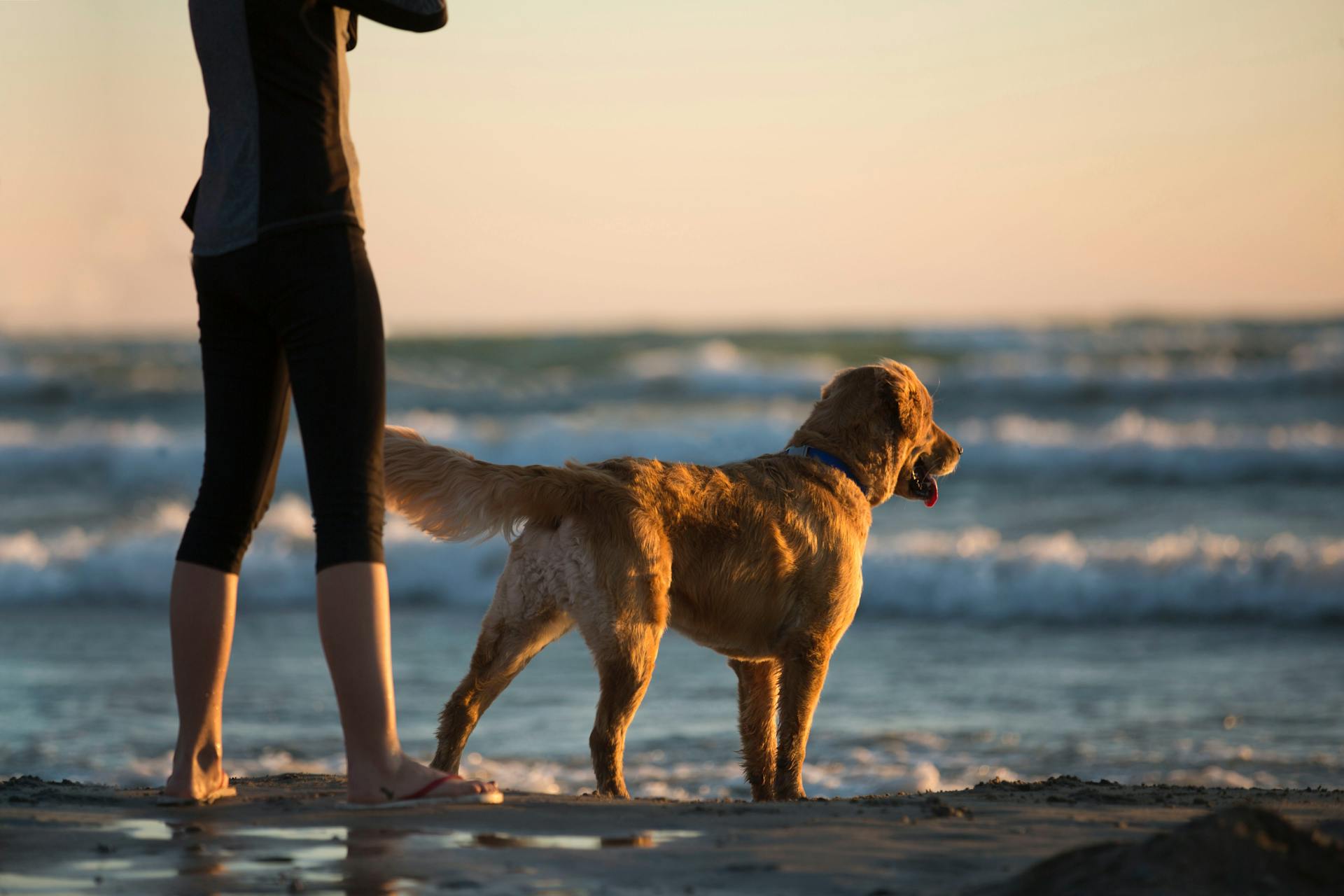
If you're considering adding peanut butter to your dog's diet, there are a few other things to keep in mind.
Dogs with chronic pancreatitis or those at risk for developing pancreatitis, such as Yorkshire Terriers and Miniature Schnauzers, should avoid peanut butter altogether.
Pups with kidney problems should not eat peanut butter as it can contain high salt levels, which may make their condition worse.
Some peanut butters contain xylitol, a sugar substitute that's toxic to dogs. If you see xylitol on the ingredient list, it's best to choose a different brand.
Dogs with sensitive stomachs or food allergies should be monitored closely when introducing peanut butter to their diet.
Here are some ingredients to watch out for:
- 1,4-Anhydro-D-xylitol
- Xylite
- Anhydroxylitol
- D-xylitol
- Xylitylglucoside
These ingredients are all synonyms for xylitol, so it's essential to be on the lookout for them.
Precautions and Treatments
Spreading peanut butter on a lick mat or toy can be a great way to keep your dog happy and busy, but be sure to use it in moderation. Overfeeding can lead to weight gain and other health issues.
To make peanut butter treats at home, you can simply spread a spoonful of peanut butter onto a lick mat or toy, but be sure to use a healthy recipe that doesn't include added sugars or oils.
If you're giving your dog peanut butter as a reward, start with a small amount, such as a teaspoon or a finger full, to avoid overfeeding.
5 Ways to Treat
Treating your furry friend with peanut butter is a great way to show them some love and affection. Here are a few ways to do just that:
Spread a spoonful of peanut butter on a lick mat or toy to give your dog a delicious "job" that will keep them happy and busy. This is a great way to keep your dog occupied while you're busy with something else.
Reward your dog with a teaspoon (or finger) full of peanut butter for good behavior. This can be a great motivator for your dog to learn new tricks or behave well.
You might like: My Great Pyrenees Won't Eat

Making homemade peanut butter dog treats is a fun and tasty way to treat your dog. You can customize the ingredients to suit your dog's dietary needs and preferences.
Tucking your dog's medication into a dollop of peanut butter can make it easier for them to take their medicine. Just be sure to use a small amount of peanut butter to avoid overwhelming your dog.
If your dog is getting a trim or bath, a nutritious snack like peanut butter can help distract them from the process. This can make the experience much less stressful for both of you.
Things to Avoid
Some dogs should steer clear of peanut butter altogether, especially those with chronic pancreatitis or kidney problems. For instance, Yorkshire Terriers and Miniature Schnauzers are prone to pancreatitis, so even a small amount of peanut butter can be detrimental.
Peanut butter contains high levels of fat, which is not ideal for overweight pets. In fact, it packs around 180-200 calories per two tablespoons, most of which comes from fat.
A unique perspective: Pancreatitis in Dogs Not Eating
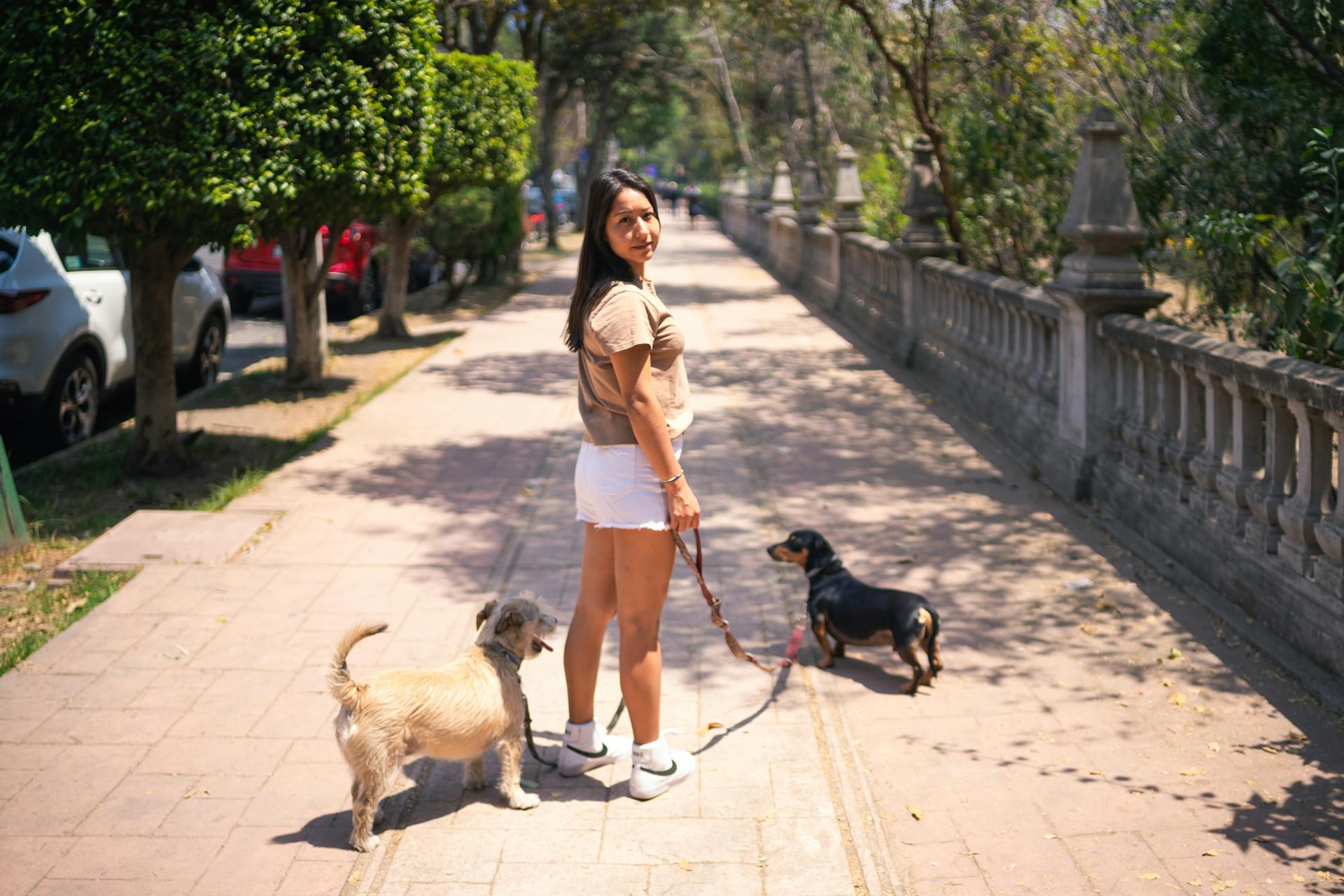
Xylitol is a sneaky ingredient that can be hidden in plain sight, even on labels that claim to be "100% natural" or "no artificial sweeteners". This sugar substitute is toxic to dogs and can cause a rapid drop in blood sugar levels.
Be on the lookout for xylitol in peanut butter and other foods by checking the labels for ingredients like "xylite", "anhydroxylitol", "D-xylitol", and "xylitylglucoside". If you suspect your dog has eaten xylitol, contact your vet immediately.
Here's a quick reference guide to help you identify xylitol-containing ingredients:
If your dog has been prescribed a special diet or is sensitive to certain foods, it's best to stick with their usual fare to avoid any potential issues.
General Information
Peanut butter provides plenty of benefits to dogs, including healthy proteins that support their immune system and aid in making hormones, enzymes, and antibodies.
Dogs can enjoy peanut butter as a tasty treat, but it's essential to choose a peanut butter specifically formulated for them, or make your own to avoid unnecessary additives.
Peanut butter is an excellent source of protein, healthy fats, vitamins B and E, and niacin, making it a nutritious snack for dogs.
What Is?

Peanut butter is a nutritious treat for dogs, containing healthy proteins, fiber, and vitamins like B and E. It's a great source of protein, healthy fats, and vitamins.
Larger dogs should get one tablespoon of peanut butter a day, while smaller ones should get no more than half a tablespoon. This amount may vary depending on the individual dog and the brand of peanut butter.
Peanut butter provides essential nutrients for dogs, including fiber for a healthy digestive tract and vitamin E for healthy skin, muscles, and eyes. It's also a good source of B vitamins and healthy fats.
Some peanut butters contain added salt, sugar, and other additives that can be problematic for dogs. Sweeteners like xylitol can even be lethal, so it's essential to choose a peanut butter that's specifically made for dogs.
Dog-specific peanut butter is made with peanuts and nothing else, without added ingredients like preservatives, sugars, or artificial additives. This makes it a safer choice for your furry friend.
Peanut butter can be a healthy addition to your dog's diet, but it's crucial to remember the 90/10 rule: 10% of your pup's diet should consist of treats, and the rest should be their regular dog food.
You might like: What Vitamins Do Dogs Need in Homemade Food
Charitable Giving Guidelines
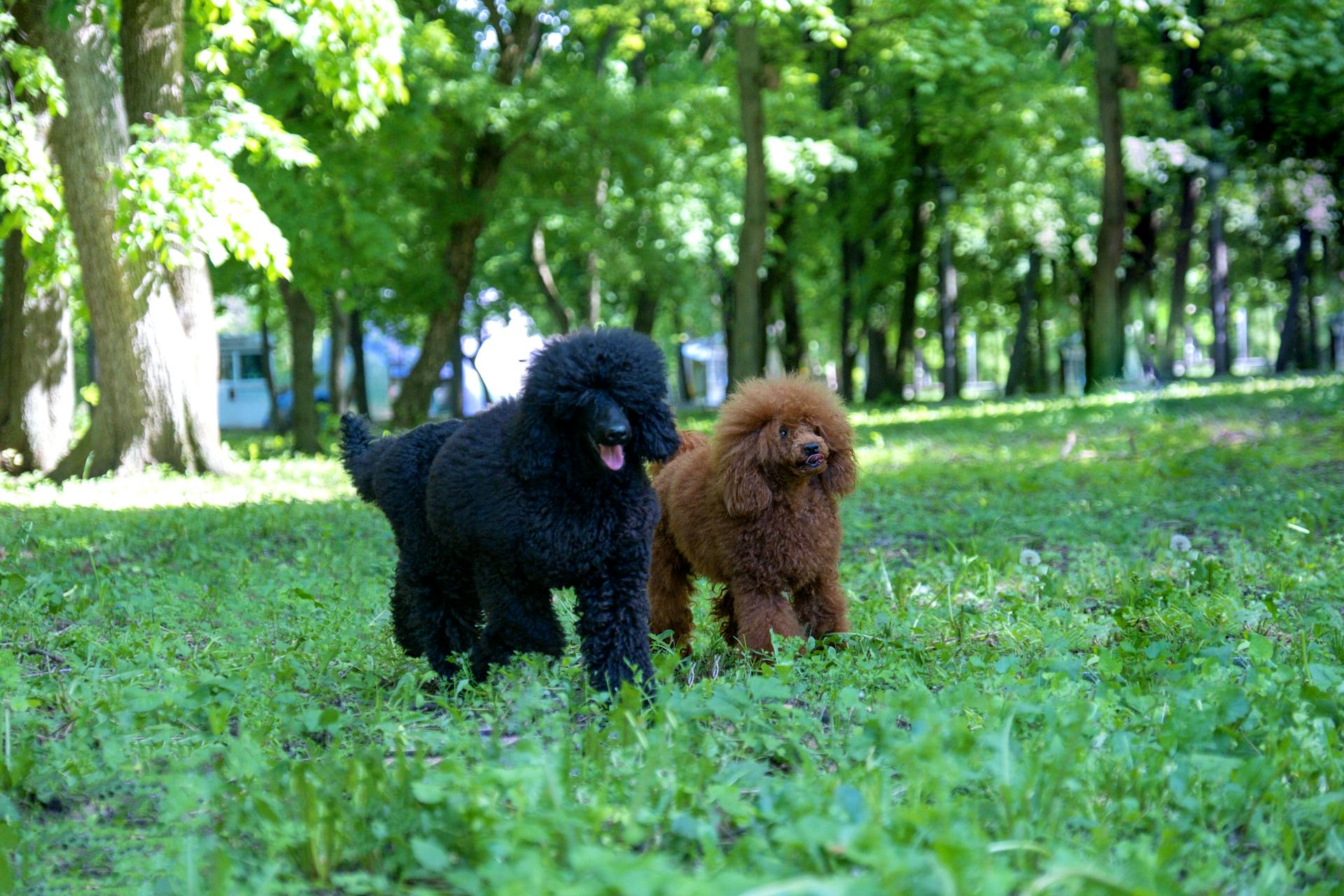
It's essential to be mindful of the 10% rule, just like with dog treats, where snacks should not take up more than 10% of your diet.
Be aware of your own limitations and don't overcommit to charitable causes, as this can lead to burnout and financial strain.
Following the 10% rule will help you maintain a healthy balance between giving and living your own life.
Consider setting a specific amount or percentage of your income to donate each month, just as you would with a regular expense.
Frequently Asked Questions
Do Chihuahuas like peanut butter?
Yes, Chihuahuas, like many dogs, have a natural affinity for peanut butter due to their omnivorous diet and sweet tooth. However, it's still important to limit their peanut butter intake to avoid overindulgence.
Can Chihuahuas eat Skippy peanut butter?
While Skippy peanut butter can be safe for Chihuahuas in small amounts, it's best to choose a brand with only peanuts listed as an ingredient to minimize potential stomach upset. Consider a plain peanut butter for your Chihuahua's treat.
Sources
- https://www.akc.org/expert-advice/nutrition/can-dogs-eat-peanut-butter/
- https://www.pawlicy.com/blog/can-dogs-eat-peanut-butter/
- https://www.dogfoodadvisor.com/canine-nutrition/is-peanut-butter-good-for-dogs/
- https://bigspoonroasters.com/blogs/blog/can-dogs-eat-peanut-butter
- https://be.chewy.com/can-dogs-eat-peanut-butter-everything-you-need-to-know/
Featured Images: pexels.com
